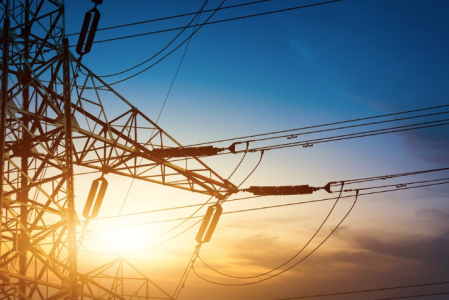Thousands of Aussies eligible for home upgrades for FREE!
By
VanessaC
- Replies 49
In a significant move towards a greener and more cost-effective future, one state government has unveiled a $200 million initiative aimed at enhancing the energy efficiency of their residents’ homes.
This ambitious plan is set to benefit thousands of Australians, providing them with the opportunity to upgrade their homes with draught-proofing, proper insulation, heat pump hot water systems, ceiling fans, reverse cycle air conditioners, and solar power.
The scheme, announced on Tuesday, is expected to reach 24,000 New South Wales residents, offering them a chance to significantly reduce their energy consumption and, consequently, their power bills.
In addition, subsidised solar power will be made available to an additional 10,000 low-income renters and apartment residents.
The Albanese government estimates that the renewable energy savings from these upgrades could help households save an additional $600 a year.
This initiative is part of a broader strategy to decrease power bills by lowering energy consumption in homes, with a particular focus on social housing and the least energy-efficient homes in the state—most of which are older properties built before the current construction standards were put in place.
The scheme will also prioritise residents in areas that experience extreme heat and cold, ensuring that these households can enjoy a more comfortable living environment while also reducing their energy usage.
The Solar Banks program is a key part of this initiative, designed specifically for people who are unable to install solar because they either rent their homes, live in apartments, or can’t afford to install their own system.
This program will 'deliver rebates of up to 50 per cent of rooftop solar installation costs for multi-unit dwellings' according to the Albanese government.
In addition to this, subsidies for plots in a NSW solar garden were also announced.
Solar gardens are essentially solar farms where individual panels can be purchased or subscribed to by residents.
These residents can then earn a credit on their energy bill, further reducing their energy costs.
This innovative approach is designed to include those whom NSW Minister for Climate Change and Energy Penny Sharpe said 'have traditionally been locked out of owning solar'.
'Low-income households, apartment residents and renters who can’t install or afford onsite rooftop solar will be eligible for a subsidy to purchase an offsite solar garden portion of a large-scale solar farm under the deal,' the Albanese government explained.
Prime Minister Albanese expressed his hope that this initiative will have a two-pronged effect, benefiting both the environment and families struggling with the rising cost of living.
'Saving energy means saving money, which is why we’re continuing to deliver cost of living relief for families that need it most without adding to inflation,' he said.
 What are your thoughts on this initiative, dear members? Share your thoughts in the comments below.
What are your thoughts on this initiative, dear members? Share your thoughts in the comments below.
This ambitious plan is set to benefit thousands of Australians, providing them with the opportunity to upgrade their homes with draught-proofing, proper insulation, heat pump hot water systems, ceiling fans, reverse cycle air conditioners, and solar power.
The scheme, announced on Tuesday, is expected to reach 24,000 New South Wales residents, offering them a chance to significantly reduce their energy consumption and, consequently, their power bills.
In addition, subsidised solar power will be made available to an additional 10,000 low-income renters and apartment residents.
The Albanese government estimates that the renewable energy savings from these upgrades could help households save an additional $600 a year.
This initiative is part of a broader strategy to decrease power bills by lowering energy consumption in homes, with a particular focus on social housing and the least energy-efficient homes in the state—most of which are older properties built before the current construction standards were put in place.
The scheme will also prioritise residents in areas that experience extreme heat and cold, ensuring that these households can enjoy a more comfortable living environment while also reducing their energy usage.
The Solar Banks program is a key part of this initiative, designed specifically for people who are unable to install solar because they either rent their homes, live in apartments, or can’t afford to install their own system.
This program will 'deliver rebates of up to 50 per cent of rooftop solar installation costs for multi-unit dwellings' according to the Albanese government.
In addition to this, subsidies for plots in a NSW solar garden were also announced.
Solar gardens are essentially solar farms where individual panels can be purchased or subscribed to by residents.
These residents can then earn a credit on their energy bill, further reducing their energy costs.
This innovative approach is designed to include those whom NSW Minister for Climate Change and Energy Penny Sharpe said 'have traditionally been locked out of owning solar'.
'Low-income households, apartment residents and renters who can’t install or afford onsite rooftop solar will be eligible for a subsidy to purchase an offsite solar garden portion of a large-scale solar farm under the deal,' the Albanese government explained.
Prime Minister Albanese expressed his hope that this initiative will have a two-pronged effect, benefiting both the environment and families struggling with the rising cost of living.
'Saving energy means saving money, which is why we’re continuing to deliver cost of living relief for families that need it most without adding to inflation,' he said.
Key Takeaways
- The NSW government has announced a $200 million initiative for home upgrades to improve energy efficiency for 24,000 residents.
- Eligible upgrades include draught-proofing, insulation, heating and cooling systems, and solar power, with additional solar subsidies for 10,000 low-income renters and apartment residents.
- The scheme is expected to help households save approximately $600 annually on energy bills, with an emphasis on social housing and older, less energy-efficient homes.
- The Solar Banks program will provide rebates for residents unable to install solar panels, and subsidies are also available for participating in solar gardens.








